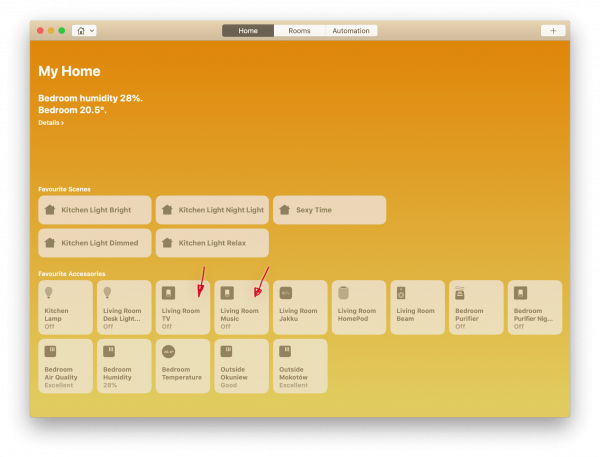Table of Content
Inherently, residents have zero economic leverage over the nursing home, making correction of deficiencies problematic, especially if seniors have no advocates in the community, such as family. Medicare Part B covers the service of physicians and other medical professionals such as nurse practitioners, nurses, respiratory therapists, and physical therapists. These services are covered regardless of location; the fact that they are provided in a SNF, ICF, or in a custodial care facility is irrelevant. Part B of Medicare will also cover durable medical equipment and medical supplies if they are medically necessary. But Medicare Part B does not cover any purely custodial services. Having access to affordable health care is among the top concerns for retirees, and there have been several approaches over the years to ensure coverage for older Americans who age out of other Tricare plans.

As noted above, the chief disadvantage of using Medicaid to cover nursing home care is that Medicaid takes essentially all of a person’s assets as compensation, both during and after life. Medicare makes a very firm distinction between medical care and custodial care. Individuals may be unable to care for themself because of medical care, such as a period after surgery, or when a patient needs to learn to walk again after a hip replacement. In that case, custodial care given in conjunction with medical care is covered, but for no more than 99 days. A nursing facility is one of many settings for long-term care, including or other services and supports outside of an institution, provided by Medicaid or other state agencies.
Private medical insurance
For example, commonly an individual will enter a Medicare SNF following a hospitalization that qualifies him or her for a limited period of SNF services. If nursing home services are still required after the period of SNF coverage, the individual may pay privately, and use any long-term care insurance they may have. If the nursing home is not Medicaid certified, he or she would have to transfer to a NF to be covered by the Medicaid NF benefit. In addition to nursing home care, Medicaid generally covers care in an assisted living facility as well as some home care services. Home care is typically provided through home- and community-based services "waiver" programs to individuals who need a high level of care, but who would like to remain at home. Almost all state Medicaid programs will cover at least some assisted living costs for eligible residents.
Jane (or her guardian/conservator) pays for the first 60 days out of pocket. After 60 days, the insurance policy reimburses the daily cost of up to $400 per day until the $400,000 is exhausted. Once or if the benefit limit is exhausted, Jane would start paying again. You may have had a conversation with a loved one where they asked you not to put them in a nursing home. Agreeing that you will not put someone in a nursing home may close the door to the right care option for your family. The fact is that for some illnesses and for some people, professional health care in a long-term care facility is the only reasonable choice.
Hiring a caregiver: Should you work with an agency or find your own?
However, private insurance coverage varies tremendously depending on the insurance company plan, he says. In all 50 states and the District of Columbia, Medicaid will pay for nursing home care for persons who require that level of care and meet the program’s financial eligibility requirements. Readers should be aware that the financial requirements and the level of care requirements vary based on the state. Furthering the complexity is that the financial requirements change based on the marital status of the Medicaid beneficiary / applicant. For those who are eligible, Medicaid will pay for the complete cost of nursing home care, including room and board. Medicaid will pay for nursing home care on an ongoing, long term basis for however long that level of care is required, even if it is required for the remainder of one’s life.

Nursing home care is, in fact, less expensive than 24/7 home care. However, there are other factors of which not every family is aware. These programs function by providing care assistance, financial assistance and other in-home supports to help care for the loved ones at home, at least for part of the time. Other ways to pay for nursing home care costs include through personal assets , a reverse mortgage, an annuity, or a Health Savings Account .
What Is The Difference Between A Skilled Nursing Facility And A Nursing Home
However, there are items that are mandatory for the states to cover, one of which is long-term nursing care. Nursing facility services for individuals under age 21 is a separate Medicaid service, optional for states to provide. However, all states provide the service, and in practice there is no distinction between the services. Most people who enter nursing homes start by paying for their care out-of-pocket. Ultimately, when it comes to paying for nursing home care with insurance, gaining clarity around all of your options will help you pinpoint the right path forward. Care that assists with activities of daily living like eating, drinking, dressing and bathing.
They furnish a financial statement, and VA establishes a co-payment based on that information. Medicare Part A covers medically necessary SNF care when skilled nursing services are needed. Again, please note that SNF, ICF, and custodial care may all be provided under one roof – it is the level of skill needed to care for the patient that makes the difference. Examples include the need for sterile dressings, maintenance of surgical drains, etc. Custodial care may be covered by Medicare Part A when it is medically necessary. The Federal Long Term Care Insurance Program, the group long term care insurance program that onlymembers of the federal family can apply for, can help.
These spousal impoverishment rules are in place to protect a non-applicant spouse from having too little from which to live, while also effectively lowering an applicant spouse’s countable assets and income. There are long-term care insurance policies that are not partnership plan policies for which the premiums are not eligible for this credit. Therefore, you must check your policy or contact your insurance company to confirm that it is a partnership plan policy. To qualify for Medicaid coverage, applicants must have limited assets and income. You typically cannot have more than $2,000 in assets; the figure may be slightly higher in some states.
It depends on your income and the level of your service-connected disability . While SeniorCareAdvisor.org strives to provide the most accurate and useful information as possible, this information is not advice - medical, financial, legal, or otherwise. Always consultant your health insurance policy and representatives to determine your specific coverage. You can also purchase additional policies, such as Medicare supplement insurance or Medicare Part D plans through private insurance companies.
If the individual is in danger for two of these reasons, it is likely they would qualify for nursing home level of care, and therefore, qualify for Medicaid from a “level of care” perspective. Not every nursing home resident actually requires nursing home care. It is important to recognize many assisted living communities now offer advanced care services that are almost on par with nursing homes. One option for reducing nursing home costs is to consider assisted living instead.
Family situation - if you have a spouse or adult children, you may be more likely to receive care at home from family members. If family care is not available and you cannot care for yourself, paid care outside the home may be the only alternative. It is important to buy a policy that will cover the type of care you expect to need and will be available in your area. Adults over the age of 65 have surpassed the number of teenagers, and people in their 50's and 60's can expect to live longer than previous generations.
In each, you’d live there full time and have access to nursing and medical care, as well as help with daily tasks 24 hours a day. Unlike Medicare, Medicaid can cover long-term care, either in a nursing home or at home. Long-term care insurance is cheap at first and becomes more and more expensive to acquire as you age. A recent study showed that women will be charged around $1,000 more per year, on average. There are, of course, numerous health conditions that can disqualify individuals from long-term care insurance.
Any of your eligible family members could apply for coverage even if you don’t. Also, unlike the FEHB, the FLTCIP doesn’t cover minor children but eligible adult “children” could apply for coverage. If you’re not currently in the VA health care program, you can apply for benefits now. One of the biggest misconceptions about Medicare is that it provides long-term nursing home care in Alabama coverage.
If your income drops below the qualifying mark and you are accepted into the program, Medicaid will cover 100% of your nursing home expenses at a Medicaid-approved facility. In all states, persons can “spend down” their assets that are over Medicaid’s limit. Medicaid has a 60-month look back period in which assets transferred for less than fair market value result in a penalty period of Medicaid ineligibility. Ways to spend down assets without violating this rule include purchasing an irrevocable funeral trust, paying off debt, and buying medical devices that are not covered by insurance. There are also several Medicaid planning strategies not mentioned on this page that can be used to help persons meet Medicaid’s asset limit. Other states allow persons to qualify by utilizing qualified income trusts, also called Miller Trusts.

It is important to note, however, that the level-of-care and financial requirements are not the same in every state, and eligibility gets even more complex when factors like marital status and assets are considered. Determine your or your loved one’s specific eligibility criteria here. Most states have non-Medicaid funded programs that provide care services and supports to individuals who require nursing home level care but are not eligible for Medicaid. Support like respite care to relieve the family caregiver, transportation assistance, and home delivered meals serve the objective of unburdening family members.



















